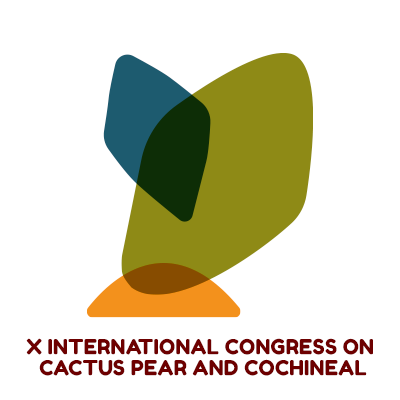Online Publication Session - X International Congress on Cactus Pear and Cochineal
Sessão 1 - High quality reference sequence of diploid Opuntia cochenillifera – A reference for cactus pear genomics
Como citar esse trabalho?
Para citar este trabalho use um dos padrões abaixo:
Como citar esse trabalho?
- Tipo de apresentação: Apresentação Oral
- Eixo temático: Genetic resources and breedIng of cacti
- Palavras chaves: Opuntia; cactus pear; genetics; genomics; diploid;
- 1 University of Nevada
- 2 University of Nevada, Reno
Por favor, faça o login para assistir o vídeo
Entrar- Tipo de apresentação: Apresentação Oral
- Eixo temático: Genetic resources and breedIng of cacti
- Palavras chaves: Opuntia; cactus pear; genetics; genomics; diploid;
- 1 University of Nevada
- 2 University of Nevada, Reno
Cactaceae comprise about 1,800 species organized into 306 major genera with up to 18 genera recognized within the subfamily Opuntioideae with the largest and most economically important genus (Opuntia s.s.; tribe Opuntieae) being comprised of 150–180 species. Opuntias have a wide ranges of uses including as a food source for humans and forage/fodder for livestock and other animals, juice and sweeteners, processed foods, candies, dyes and food coloring, cometics, nutriceuticals, and medicines and as emerging biofuel feedstocks for biogas and ethanol production. A majority (~60%) of Opuntia spp. have undergone some degree of polyploidization and hybridization making those taxa especially challenging to sequence. Therefore, we focused our efforts on obtaining a high-quality, chromosome level genome assembly of the diploid species O. cochenillifera (TAMU 1308) (2n = 2x = 22) with an estimated genome size of ~1.1 Gb (2C = 2.3 pg) based upon flow cytometry. The O. cochenillifera genome was assembled with PacBio sequencing technology merged with 10x Genomics linked-read data. The Hi-C (chromatin proximity and ligation capture) sequencing method provided a chromosome level assembly resulting in 11 pseudochromosomes comprising 1.02 Gb. The G + C content for the O. cochenillifera genome was 33%. A de novo transcriptome assembly comprised of ~31,942 unique transcripts was also created to improve genome annotation with a 89.3% BUSCO score. Mapping of transcripts, trained ab initio gene models, and protein sequence comparisons from other plant species identified 30,772 putative gene loci including protein-coding loci. The annotated genome was estimated to have ~95.8% completeness according to the BUSCO pipeline. This diploid genome will serve as a useful reference for many diploid and polyploid cactus pear species within the Opuntioideae to explore functional and evolutionary aspects of this culturally, ecological, economically, and medicinally important cactus species.
Discussões Científicas de Qualidade
Com ~200 mil publicações revisadas por pesquisadores do mundo todo, o Galoá impulsiona cientistas na descoberta de pesquisas de ponta por meio de nossa plataforma indexada.
Confira nossos produtos e como podemos ajudá-lo a dar mais alcance para sua pesquisa:
Como citar esse proceedings?
Esse proceedings é identificado por um DOI , para usar em citações ou referências bibliográficas. Atenção: este não é um DOI para o jornal e, como tal, não pode ser usado em Lattes para identificar um trabalho específico.
Verifique o link "Como citar" na página do trabalho, para ver como citar corretamente o artigo

